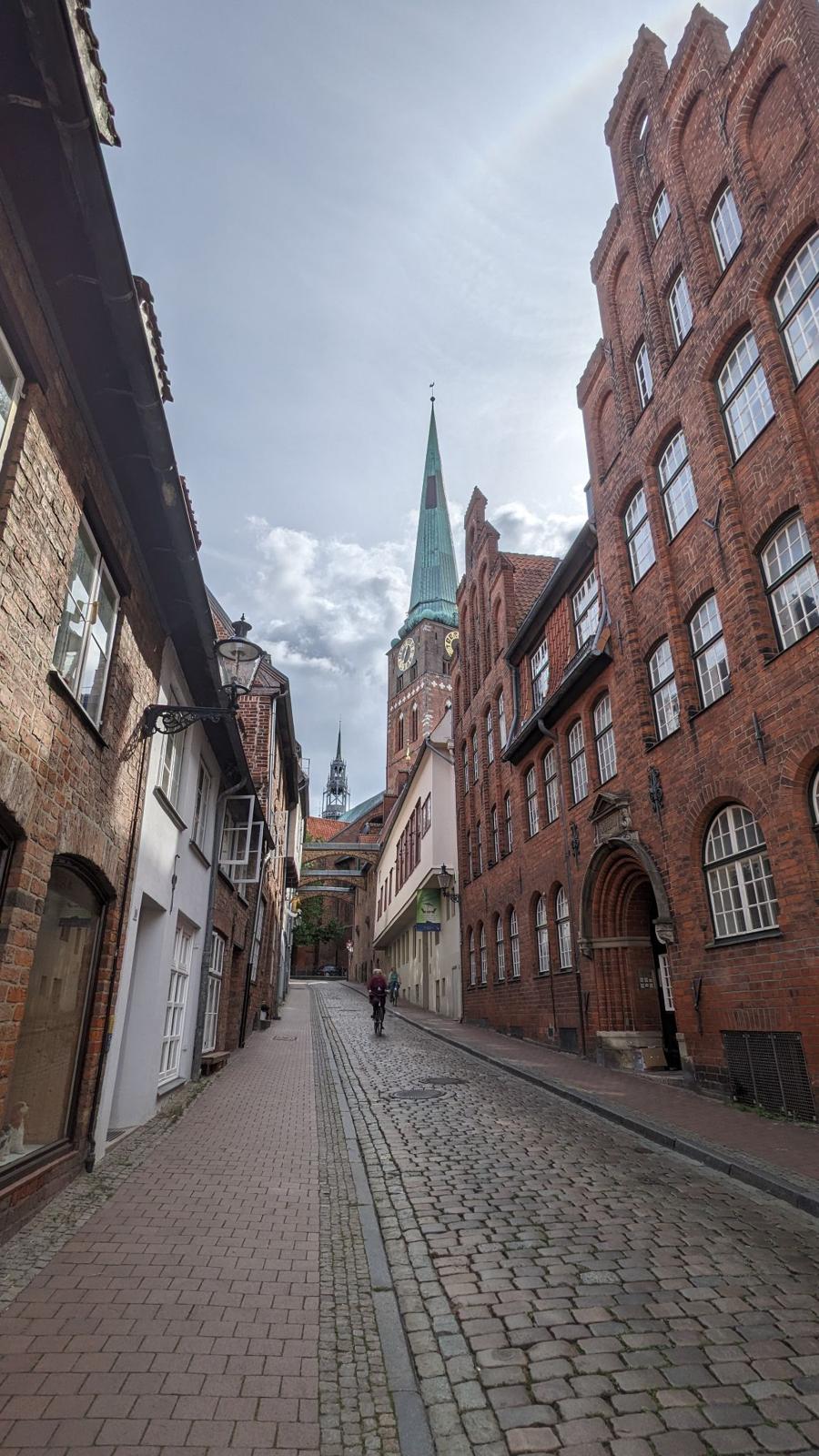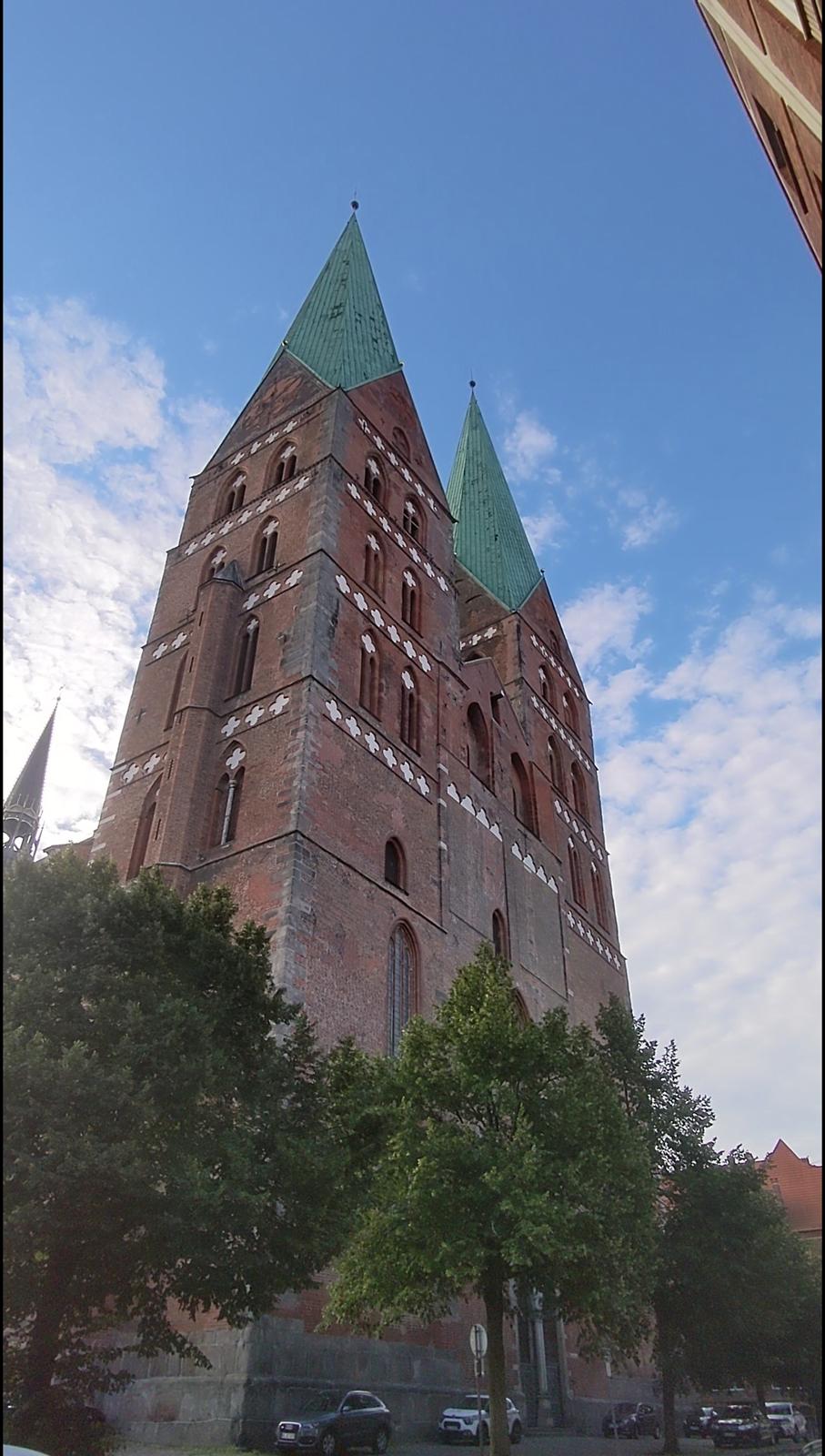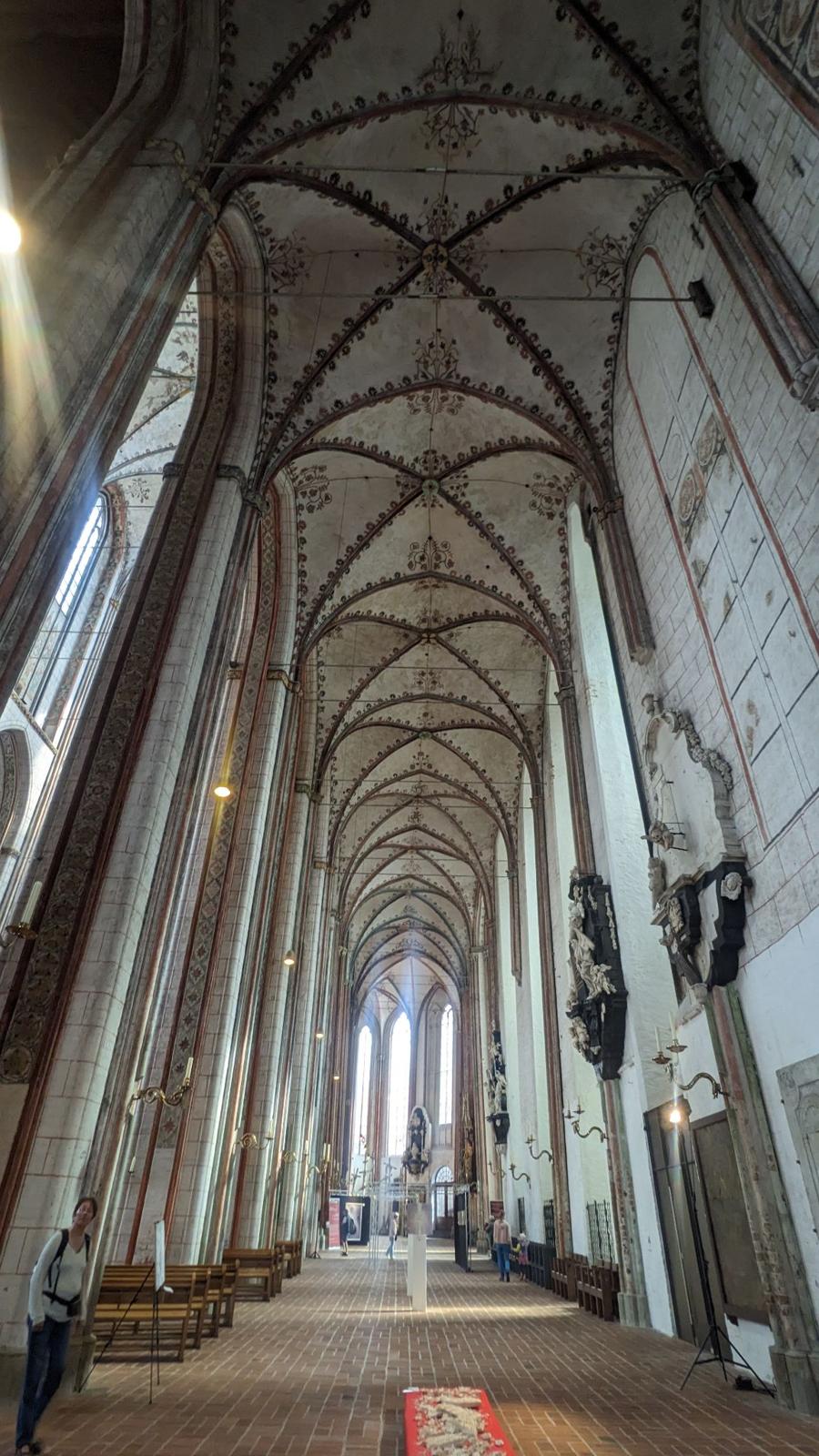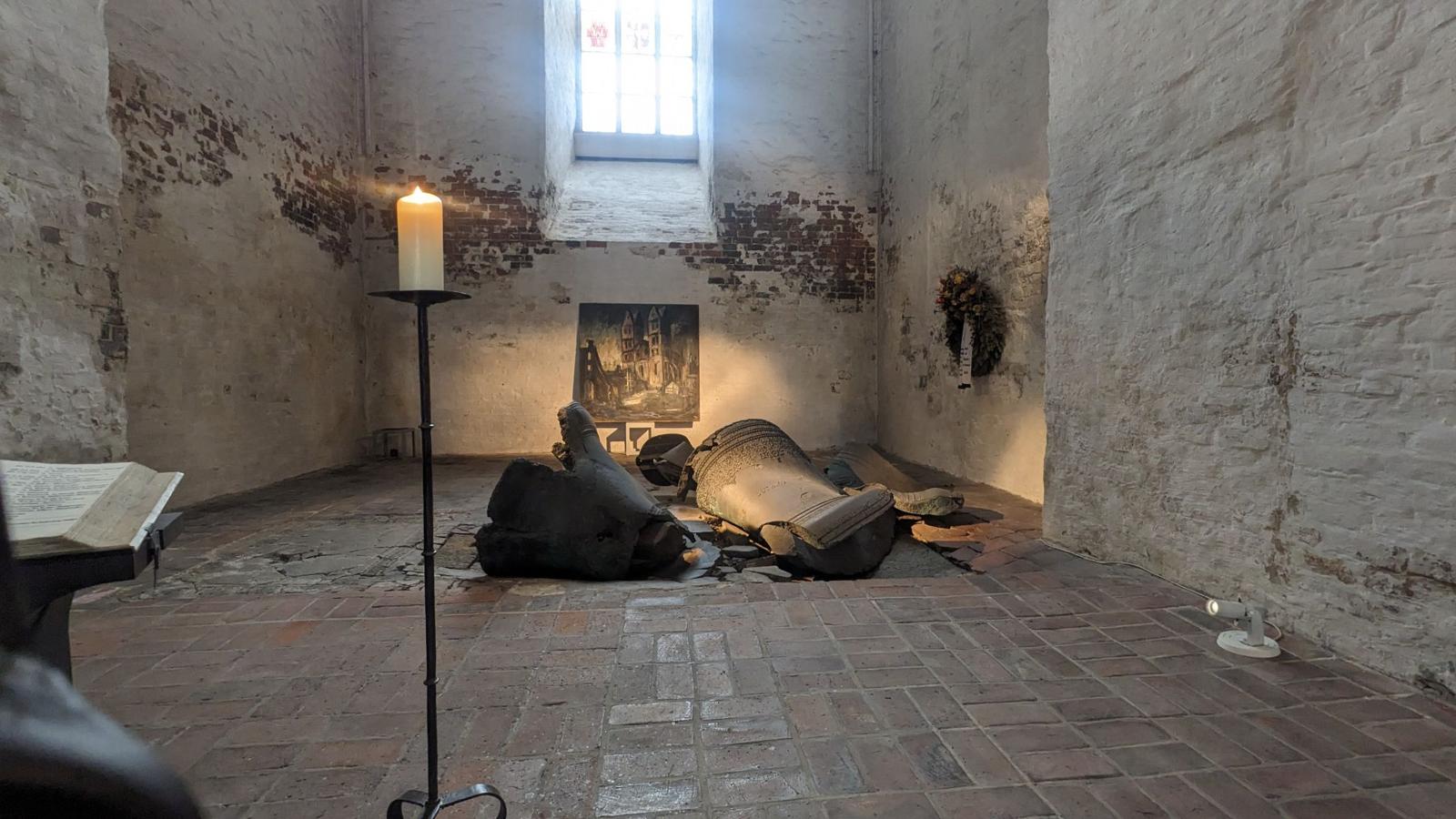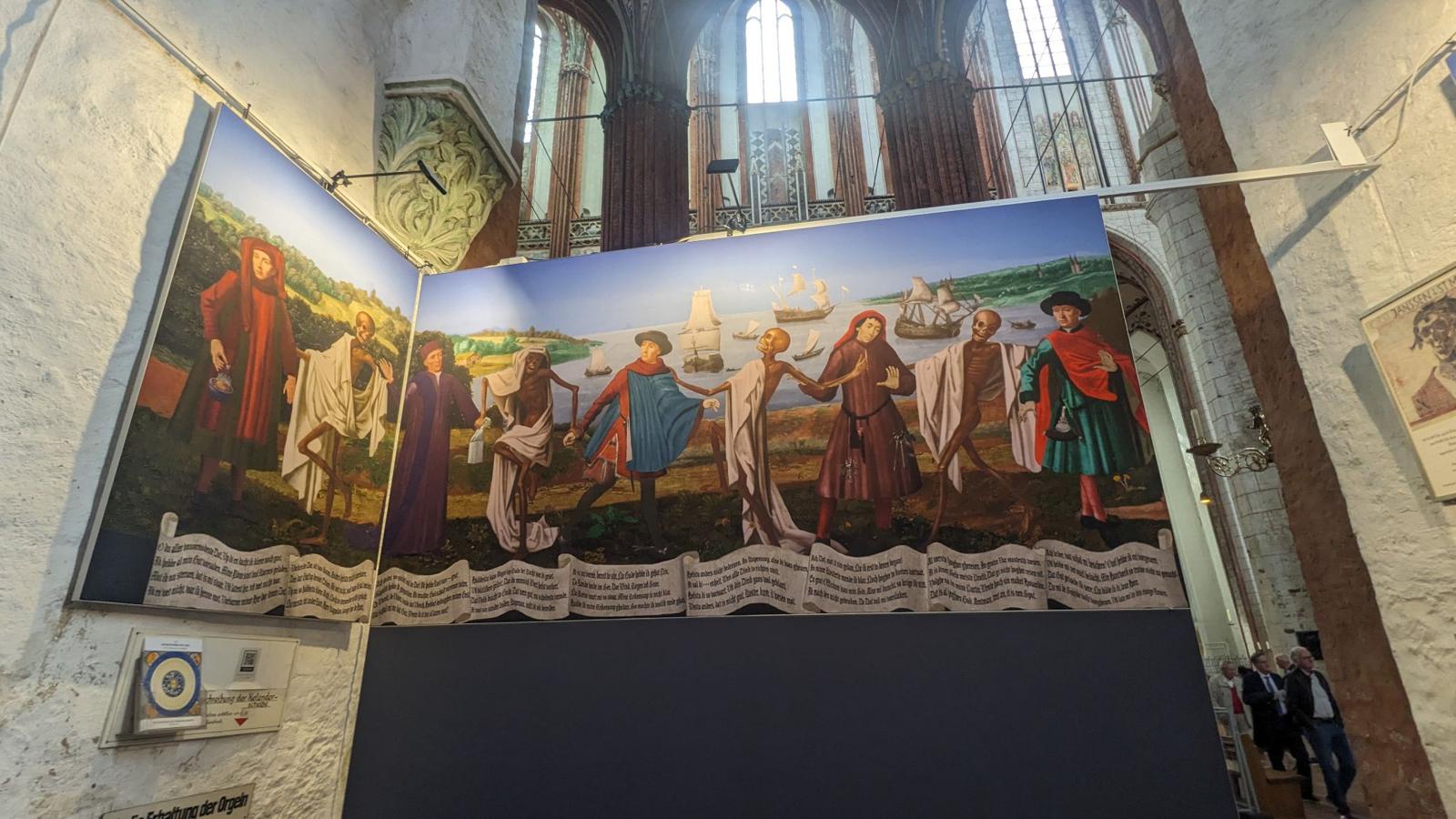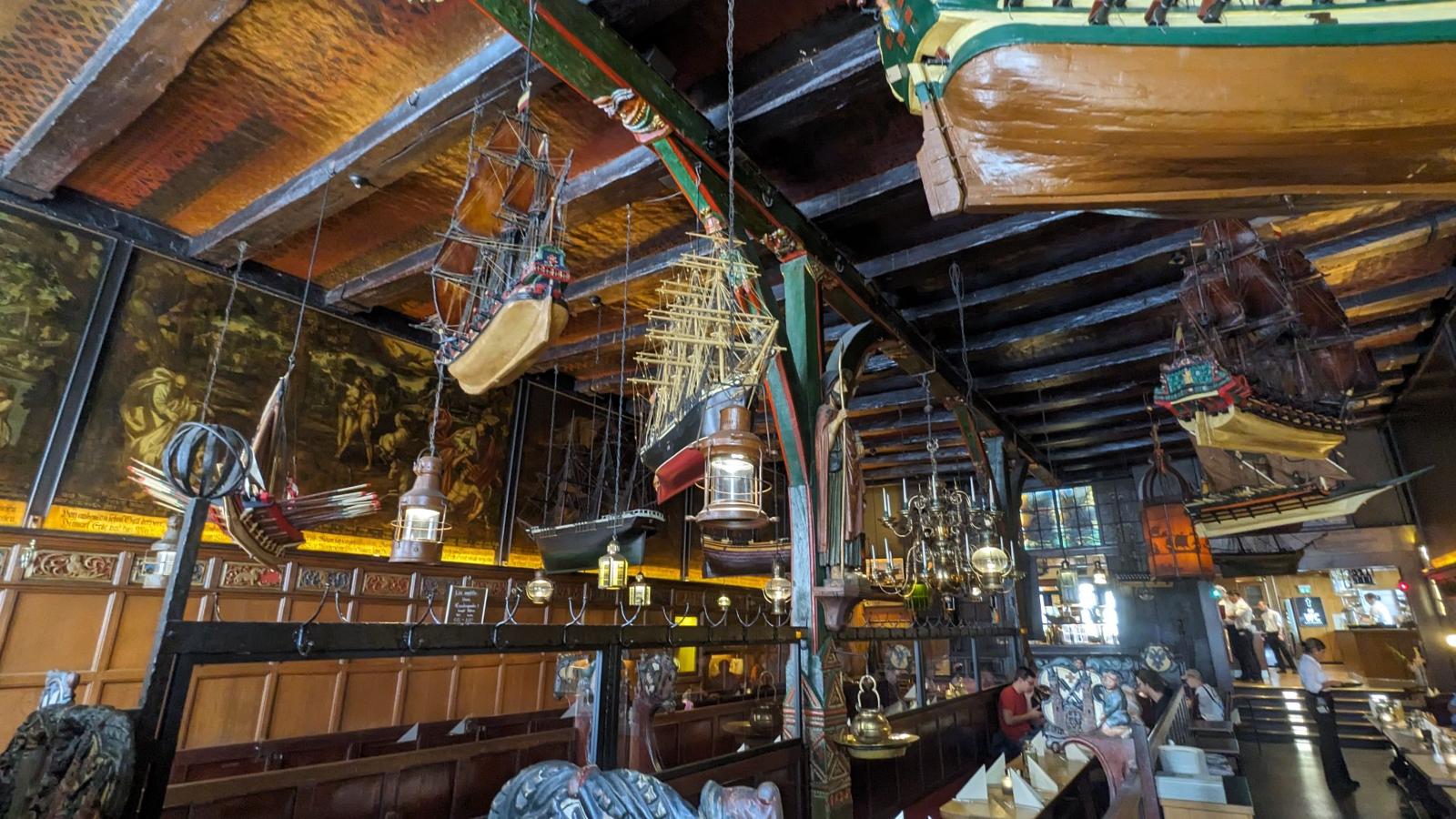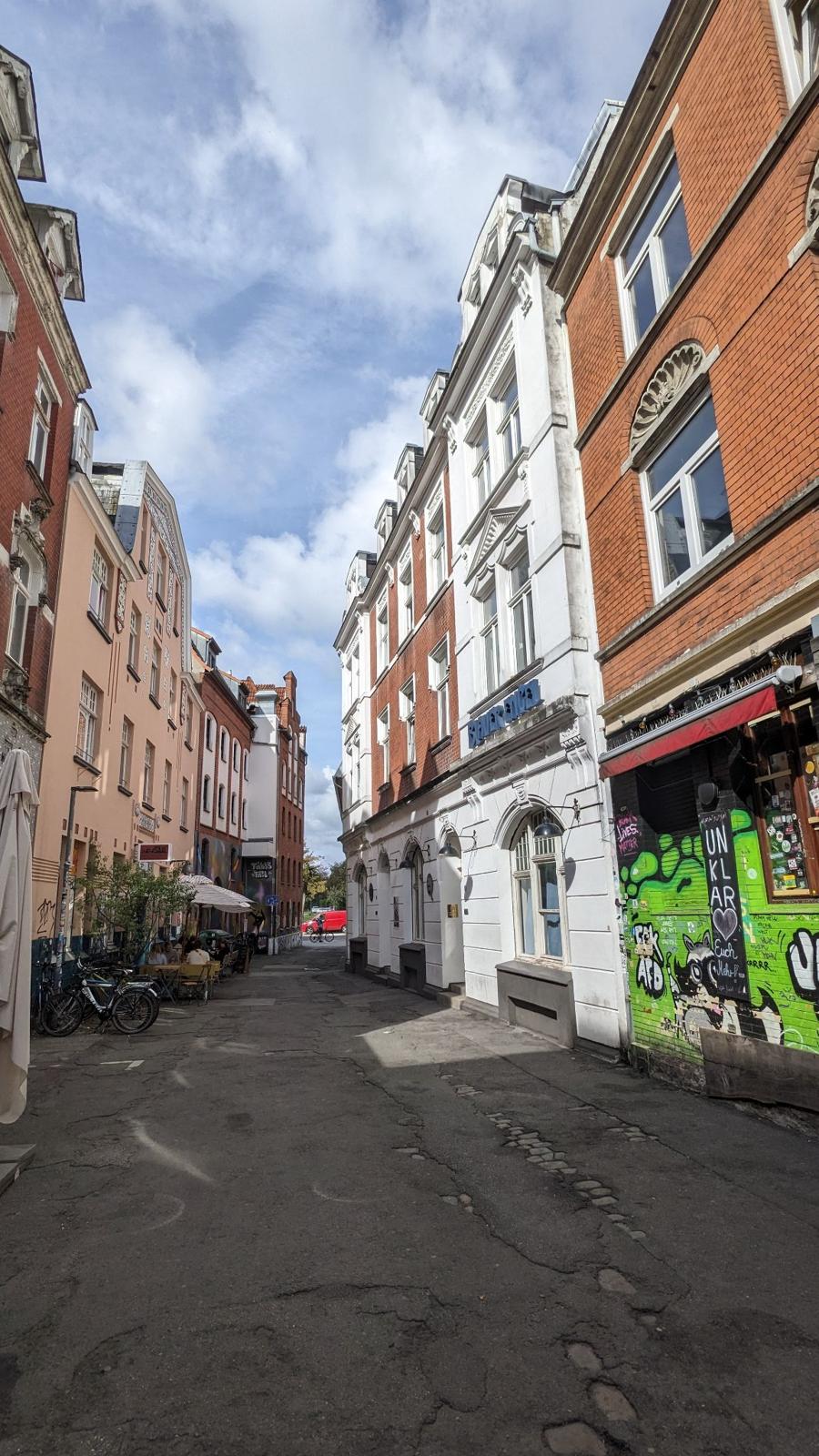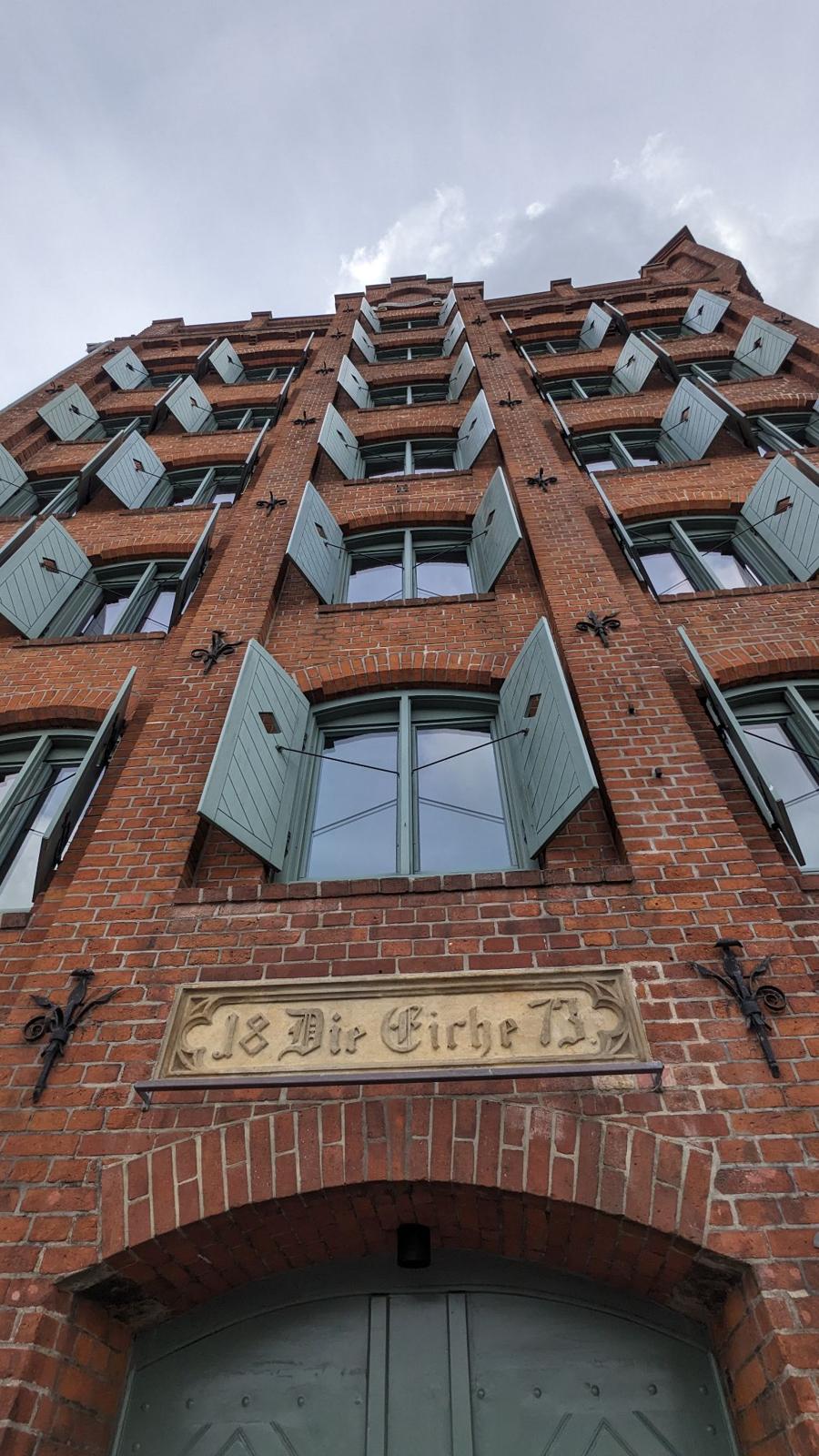Other travel notes
- European bathing locations
- Bosanski Brod - how the other half live
- Pianos in France
- A slice of Brod
- World heritage sites
- Barcelona by bike
- The biodiversity of dragons' teeth
- French night trains
- Let's Go! - exploring Gorizia and Nova Goriza
- A lasting legacy
- Plan-free London to Morocco
- Meet and Greet Brussels
- What are the chances of missing a connection?
- How do you solve a problem like Monturiol?
- Sports report
- Sunnyland - an anti-war advert?
- Swedish night trains
- The architecture tram
- Third Place
- Taking the train to Spain
- Could this problem-solver solve today's biggest problems?
- A divine solution to the Zaragoza Delicias problem
Meet and Greet Lubeck
It’s a beautiful Sunday morning in Lübeck, Germany and I’m meeting up with Jürgen and Andrea outside the Rathaus or town hall. They are volunteer Greeters and are going to show me around their town.
The Rathaus is closed to the public today but Andrea has a short chat with a member of staff, who kindly lets us have a look around anyway and opens up the audience chamber, which used to serve as the courtroom.
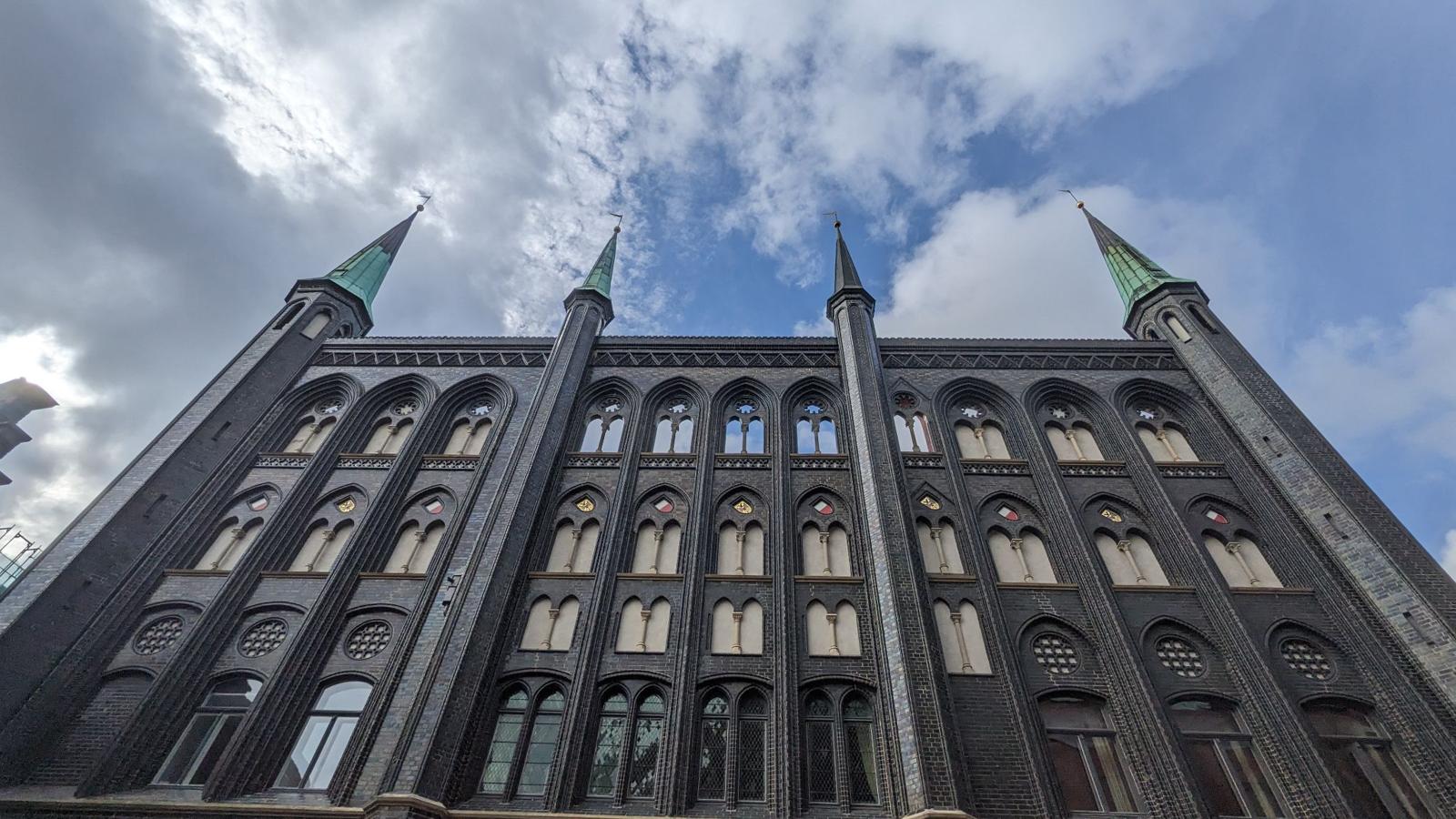
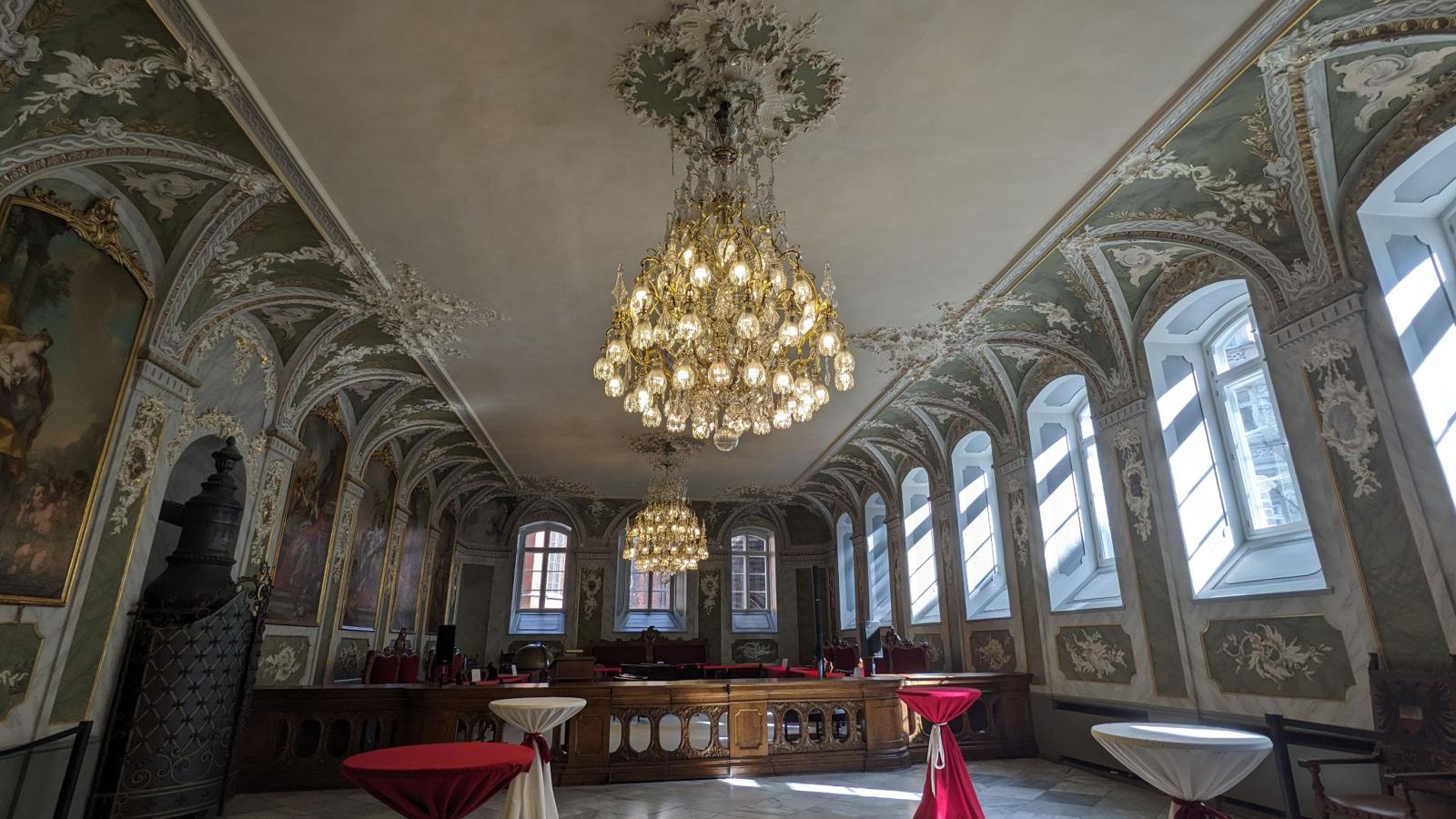
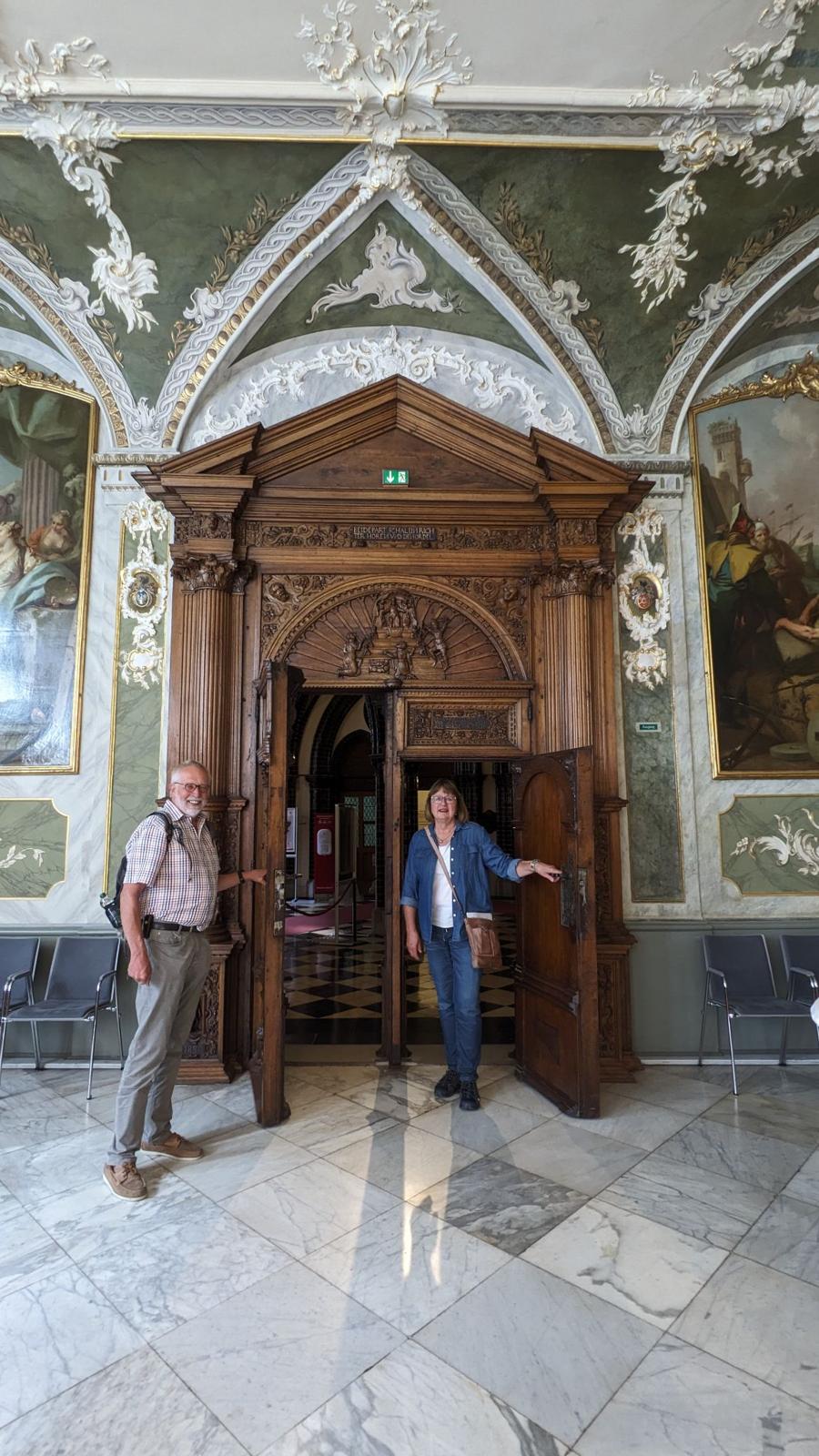
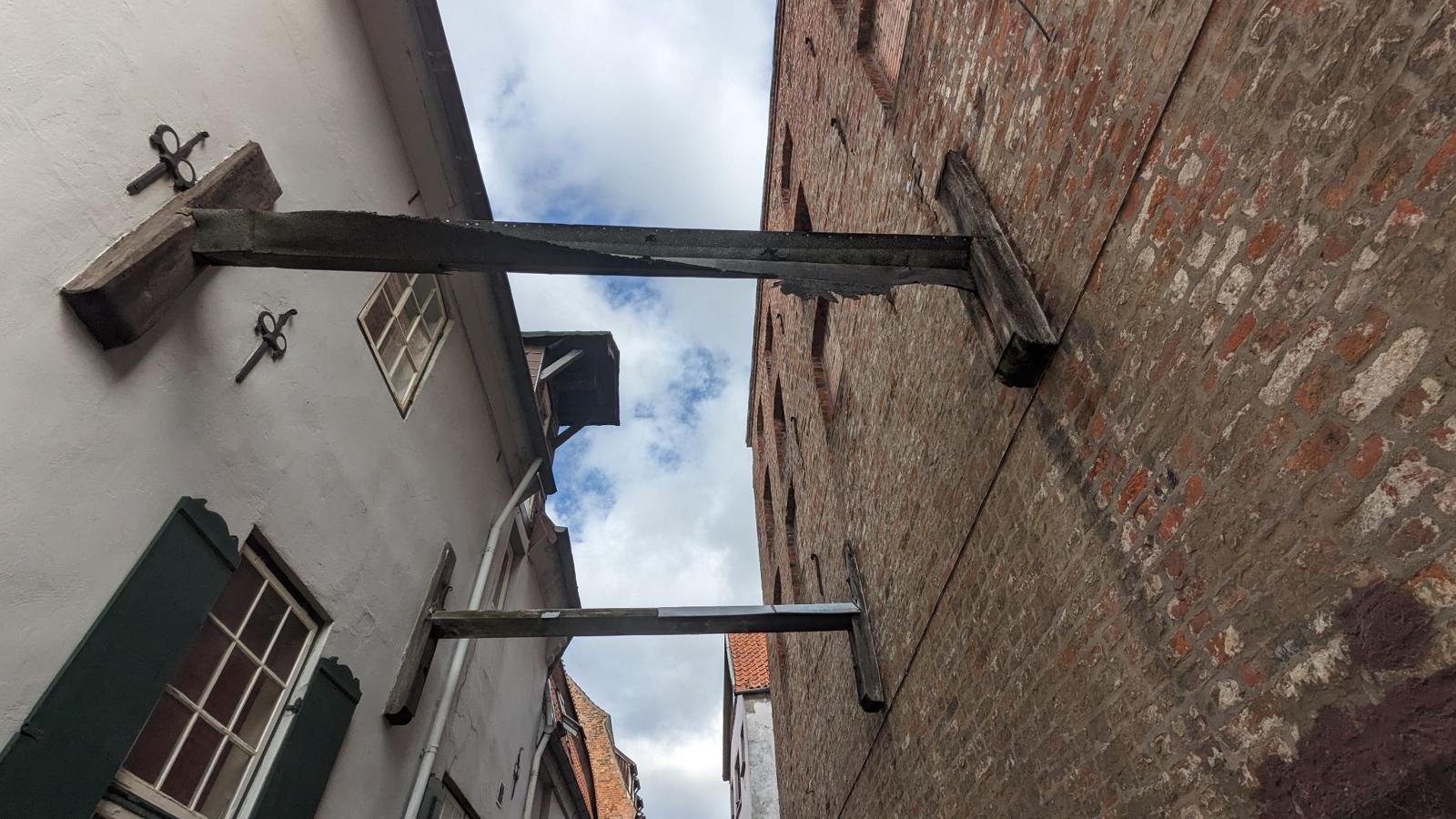
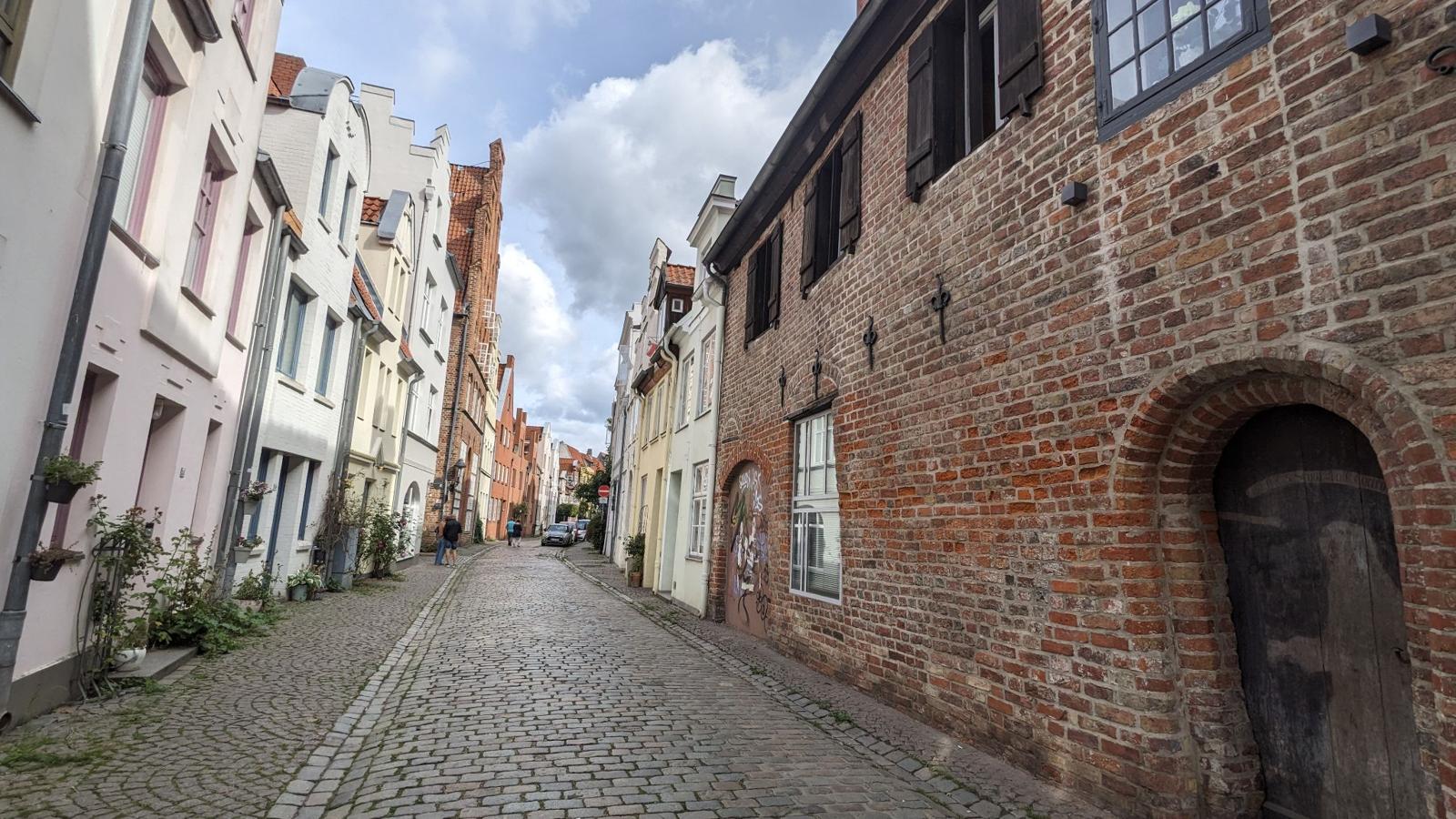
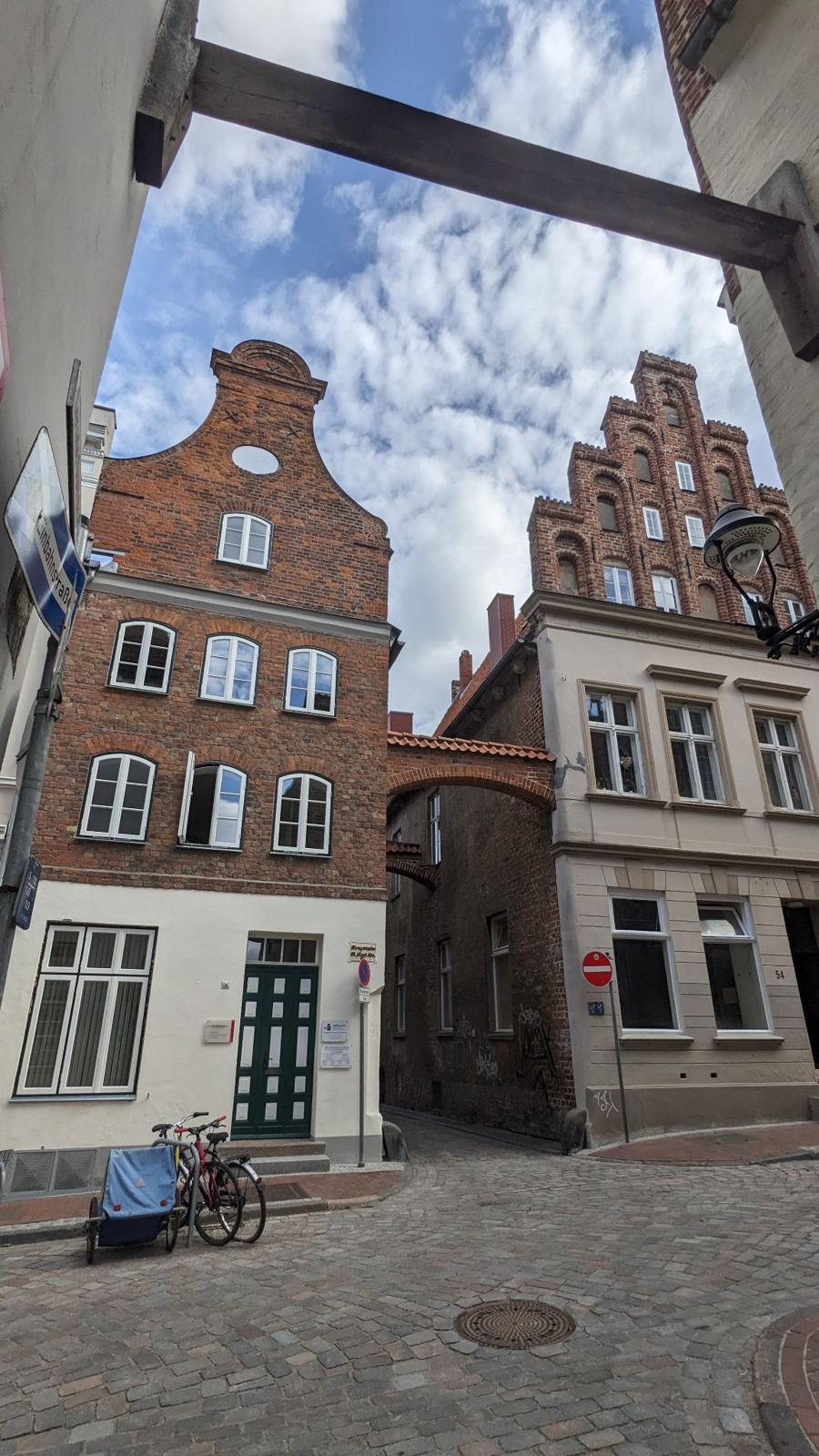
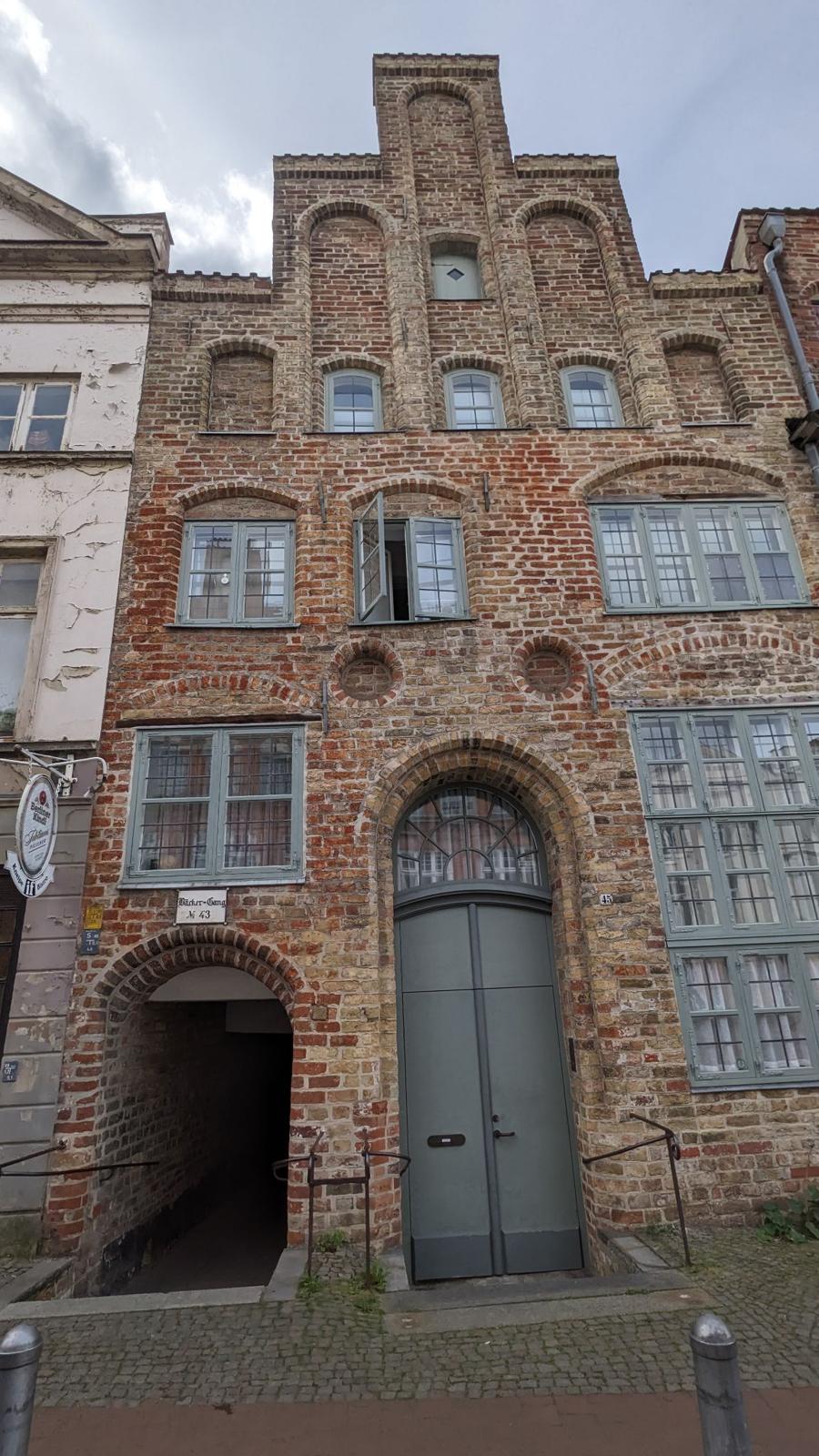
It’s baroque decoration makes it popular with tourists but the significance of the place in history would make it the perfect place to bring your kid if you want them to grow up to run a free-market think tank.
In the middle ages, Lübeck was the centre of the Hanseatic League, a sea-based trade network spanning the Baltic and beyond - think of it as a prototype EU. Merchants based in London could trade with Hamburg, Riga, or Bergen, knowing that Lübeck Law reigned supreme and this courtroom would settle any disputes fairly.
On the way out Jürgen asks which door I’d like to leave by. The big door on the left for those who had a favourable verdict or the little door of shame on the right for those who lost their case. I choose the little door of shame and still hold my head high - a benefit of not being tall.
As we wander around some of the oldest parts of town, we chat about this and that and how they came to be Greeters. They’ve always lived around Lübeck, but upon retiring, they moved from the countryside into the city so that they could have a more culturally rich life.
“Everything here is just a short walk, cycle or bus ride away.”
For anyone wanting to understand the 15-minute city, speak to these two.
But like so many centuries of Lübeckers, they have always been connected to the wider world and the sea. Before he retired, Jürgen was in naval search and rescue and their daughter is now a senior officer in the German navy.
We walk along the old streets where many of the houses are on a lean and the narrow lanes have props between the buildings.
It’s hardly surprising as it’s all built on sand.
“You know there’s an old Low German saying about things like these houses” says Andrea
“Beten scheef hett Gott leef”
It sort of means things a bit skew have God’s love
It’s a phrase that only really works in the local Low German, rather than standard High German, which is a distinct language and has much in common with languages like Dutch and English..
Next we go to the Marienkirche, with its massive and somewhat wonky twin towers that are listing like a boat with all the passengers on one side. Oh well, Beten scheef hett Gott leef.
Today is a special day. Three new bells have been installed and the Lutheran pastor leads his flock outside the church to listen to all the different rings. It isn’t just an event for the faithful. Other interested locals, including as it turned out a friend of Andrea’s, were also there to mark the event.
The pastor is wearing a black cassock and big white ruff, giving the impression he’s just stepped out of a Holbein painting, but he is holding an iPad and earpiece so that he can communicate with the bell ringers.
First, there’s a ring of the light, tinkly bells for baptism, then the ding-dong for marriage followed by a deep toll for death.
As a finale, there’s the plenum - all the bells are rung together to symbolise the resurrection of souls from their graves and ascension into heaven.
Judging by the faces of those around, the tinkling, dinging, donging and tolling may be paradise for some but purgatory for others.
We head for the Schifffahrtsgesellschaft (I love German nouns), the former mariner’s guildhall where seamen would eat, drink, do business and toast the success of future voyages.
They also made models of their ships which acted both as training aids for young sailors and good luck charms.
The place is now a restaurant but you still see the ships hanging from the ceiling while tucking into your lapskaus.
But there’s another place to visit that’s always been popular with sailors. The former red-light district, which is now home to hip bars and a friendly hostel.
One of the bars, the Blauer Engel, was inspired by a favourite haunt of novelist Heinrich Mann.
Just around the corner, past a great place selling fried herring rolls, is the warehouse belonging to the family of Heinrich and also his brother Thomas, who received a Nobel Prize (and local ignominy) for depicting the degenerate life of a middle class family in a town suspiciously close to home.
The place is now a columbarium where urns containing the ashes of loved ones can be stored.
It’s a popular alternative to graveyards and other places of remembrance, at least for those who can afford the sizable fee for the 15-year lease of a niche.
We explore the hobbit-sized passages containing little hidden-away houses where poor people used to live but are now prized by those with the deepest pockets.
As we continue walking around the town with its mixture of old and new, shaped by the severe bomb damage during the war, I’m keen to know what Andrea and Jürgen think about Germany today.
They are worried about Germany’s populist party, AfD. It’s hard to ignore that many Germans, particularly in the East, are being lured by promises of easy solutions. Far-right populism may be part of a global trend but it’s understandable why it feels particularly worrying here. The damage done by Germany and then visited on it is still a painful scar.
There’s a place to help make sense of all of that that I’m keen to see so Andrea and Jürgen take me there.
The museum dedicated to former chancellor Willy Brandt, tells the story of his life. His initial fight against fascism, followed by his work to deal with the mess left by the war, attempting to find reconciliation with Poland and find ways to work with East Germany. He became the master of compromise, which made him unpopular with those who lost out, particular people who had lived in former eastern lands that were now part of other countries.
One of those people who had to leave their native city was Danzig/Gdansk born Günter Grass. Günter made his name (and won a Nobel Prize) for his novels depicting post-war Germany and the museum dedicated to him joins onto the garden of the Willy Brandt Museum.
We have time to look at one more thing, the Heiligen-Geist-Hospital (Hospital of the Holy Spirit), which contains a series of modest wooden cells to shelter the homeless. At Christmas, each cell becomes a little workshop and stall for local craftsmen to sell their wares.
Finally, we went for a coffee before I headed off to catch my train, but what were they doing with the rest of the afternoon?
“I think we’ll go for a bike ride” says Andrea, “Especially as I now have an e-bike - I am now on my third replacement knee”
I come away from my time with Andrea and Jürgen in Lübeck with warm feelings for them and their city, but also strangely relaxed and energised.
I now know this place a little better and two of the people who live in it. A little connection has been made and it feels like the perfect souvenir.
If you would like to meet a Greeter, you can find more details here: https://luebeck-greeter.de/welcome
